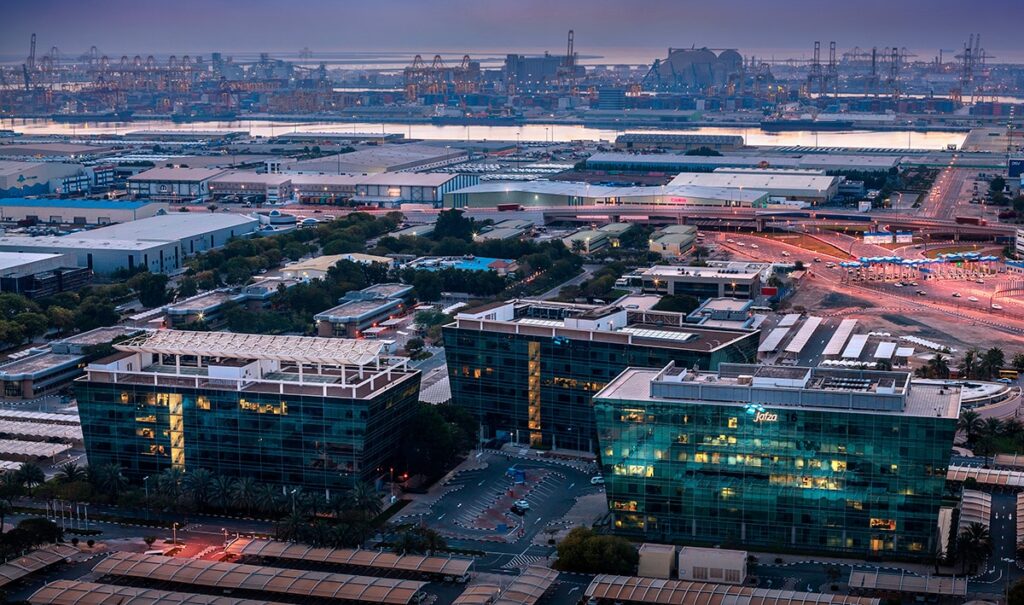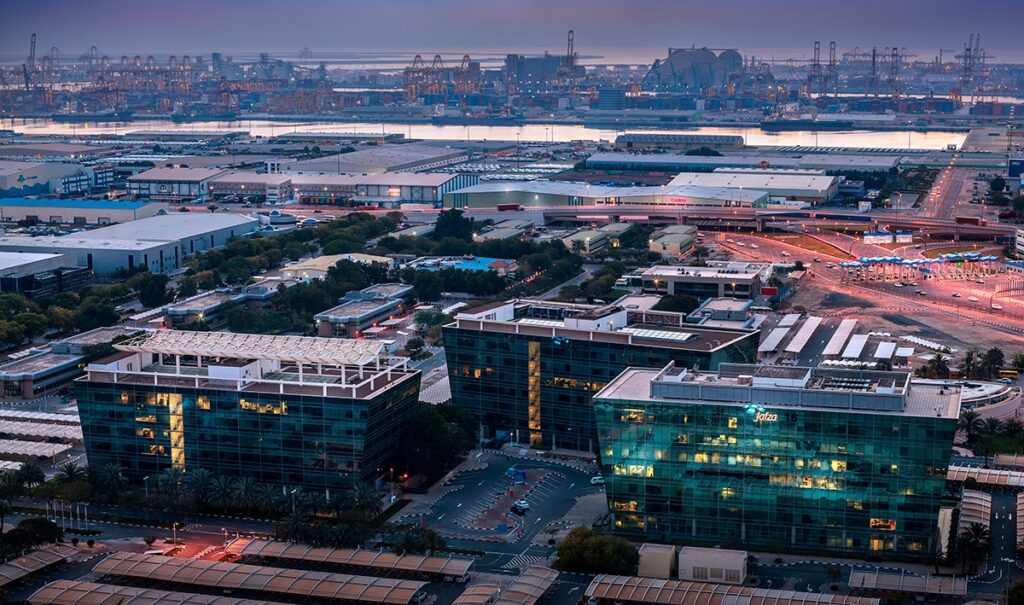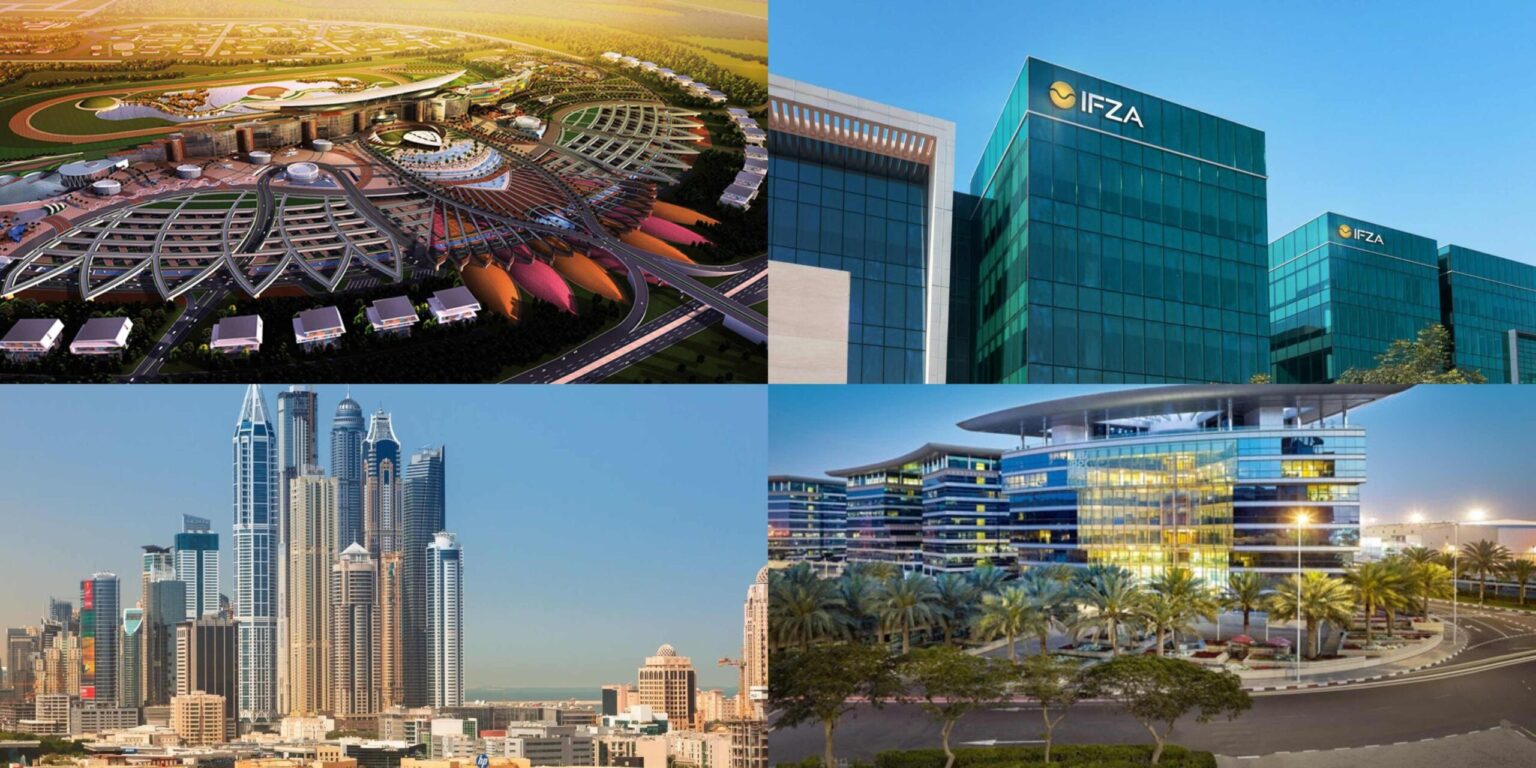UAE Free Trade Zones have become a cornerstone of the country’s economic strategy, transforming the UAE into one of the most attractive business destinations in the world. These zones offer a unique ecosystem that supports foreign investment, simplifies trade, and stimulates economic diversification. Over the past few decades, free trade zones have played a significant role in connecting the UAE to global markets, creating a hub for international trade, logistics, and finance.
What Are UAE Free Trade Zones?
Free trade zones (FTZs) are special economic areas where businesses can operate with unique benefits, such as:
- 100% foreign ownership
- Tax exemptions on corporate and personal income
- Full repatriation of profits and capital
- Simplified licensing and business setup procedures
These zones are strategically designed to attract investors and multinational companies by providing a business-friendly environment that reduces regulatory burdens and operational costs.
In the UAE, free trade zones span various sectors, including logistics, manufacturing, technology, media, finance, and healthcare. Some of the most prominent zones include Jebel Ali Free Zone (JAFZA) in Dubai, Dubai Multi Commodities Centre (DMCC), Abu Dhabi Global Market (ADGM), and Sharjah Airport International Free Zone (SAIF Zone).
How UAE Free Trade Zones Impact Global Trade
1. Attracting Foreign Investment
UAE Free Trade Zones act as magnets for global investors. The tax incentives, strategic location, and world-class infrastructure make them highly appealing for multinational corporations. This influx of foreign investment boosts the UAE’s economy while positioning the country as a global trade hub.
Investors benefit from simplified procedures, such as fast-track visa processing, business licensing, and easy access to modern office and warehouse facilities. The result is an environment that encourages international companies to establish regional headquarters or branch offices in the UAE, expanding their global reach.
2. Enhancing Export and Import Capabilities
The UAE’s free trade zones are strategically located near ports and airports, making them ideal for import-export activities. Companies operating within these zones enjoy seamless customs processes, allowing for faster shipping and lower operational costs.
For example, Jebel Ali Port in Dubai serves as a gateway to the Middle East, Africa, and Asia, facilitating millions of tons of cargo annually. Free trade zones near these logistics hubs make it easier for businesses to distribute goods efficiently and compete in international markets.
3. Driving Innovation and Diversification
Many UAE Free Trade Zones are sector-specific, encouraging innovation and technological advancement. DMCC, for example, focuses on commodities trade, including gold, diamonds, and energy products, while Dubai Internet City fosters technology and IT startups.
By supporting specialized industries, free trade zones diversify the UAE economy, reducing dependence on oil revenues. This diversification attracts high-value industries and contributes to global trade by creating competitive products and services for international markets.
4. Facilitating Global Partnerships
The UAE’s free trade zones encourage partnerships between local and international businesses. They provide an environment conducive to joint ventures, collaborations, and knowledge transfer.
Through these partnerships, companies can access new markets, share expertise, and leverage each other’s networks. This connectivity strengthens the UAE’s position as a key player in global trade and international business.
Key Free Trade Zones in the UAE

Dubai Multi Commodities Centre (DMCC)
DMCC is recognized as the world’s leading free zone for commodities trade. It specializes in gold, diamonds, energy, and agricultural commodities. DMCC supports thousands of businesses globally and provides state-of-the-art office facilities, warehouses, and trading platforms.
Jebel Ali Free Zone (JAFZA)
JAFZA is one of the largest and oldest free trade zones in the UAE. It offers access to Jebel Ali Port, the largest port in the Middle East, and provides incentives such as 100% foreign ownership, zero taxes, and full repatriation of profits.
Abu Dhabi Global Market (ADGM)
ADGM focuses on financial services, fintech, and professional services. It has its own legal and regulatory framework based on international best practices, attracting banks, investment firms, and insurance companies to establish operations in Abu Dhabi.
Sharjah Airport International Free Zone (SAIF Zone)
SAIF Zone caters to SMEs and manufacturing companies. Its proximity to Sharjah International Airport enables efficient cargo handling and logistics services, making it ideal for businesses involved in import-export activities.
Benefits of UAE Free Trade Zones for Businesses

- Tax-Free Operations: Many zones offer zero corporate tax and personal income tax, allowing companies to maximize profits.
- 100% Foreign Ownership: Foreign investors can own their businesses fully without requiring a local partner.
- Streamlined Business Setup: Free trade zones provide one-stop solutions for licenses, visas, and office space.
- Strategic Location: Located near ports and airports, zones facilitate international trade efficiently.
- Sector-Specific Support: Industry-focused zones offer tailored facilities, expertise, and networking opportunities.
Challenges and Considerations
While UAE Free Trade Zones offer immense benefits, businesses should consider certain challenges:
- Sector Restrictions: Some zones cater to specific industries, limiting operational flexibility for companies outside those sectors.
- Costs of Premium Facilities: Advanced infrastructure and prime locations can lead to higher operational costs.
- Regulatory Compliance: Companies must adhere to local laws, including labor and environmental regulations.
Despite these challenges, the advantages of operating in free trade zones generally outweigh the limitations, making them highly attractive for international business expansion.
The Future of UAE Free Trade Zones
The UAE government continues to enhance free trade zones with advanced technology, digital services, and sustainability initiatives. Smart logistics, AI-driven services, and green infrastructure are being implemented to meet global standards and future-proof businesses operating in these zones.
Moreover, the UAE is strengthening trade agreements with global partners, further boosting the role of free trade zones in international commerce. As a result, the country is expected to maintain its position as a leading hub for trade, investment, and innovation in the Middle East and beyond.
Conclusion
UAE Free Trade Zones have transformed the country into a global business hub, connecting markets, facilitating trade, and attracting foreign investment. Their strategic locations, tax benefits, and sector-specific support have created a robust ecosystem for businesses to thrive.
As the UAE continues to innovate and expand its free trade zones, their impact on global trade will only grow stronger. For businesses and investors, these zones represent unparalleled opportunities to scale, collaborate, and compete in the international marketplace.
Also read: Smart Metering: 5 Powerful Ways Transforming Utilities Management in Kuwait



